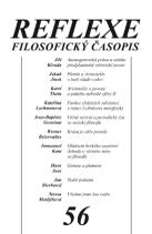The Neo-Platonic reditio in se ipsum and Augustine’s Notion of a Conversion of the Will
Knowledge of the libri platonicorum made it possible for Augustine to discover a way of an ascent of the soul in which a consideration of the created world leads one to its divine ground. Nevertheless, the confusions of human existence, as captured in the Confessions, don’t find genuine resolution in the Neoplatonic introspective ascent, but only in the Christian conversion, which, according to Augustine, represents a different kind of transformation of the soul, to wit, a recovery of the perverted and split will. Although Augustine agrees that Neoplatonic philosophy grants a true knowledge of God, he adds that by ignoring the Incarnation of the Word, it fails to offer a way towards genuine human well-being. The evil, rather than equated with the soul’s tending towards material things, is understood by Augustine as excessive love of one’s own self, which then causes the will to turn away from the Supreme Good; this constitutes pride (superbia) or vain self-elevation. Christian conversion, in contrast, makes the believer humble, and represents a descent, rather than ascent, from the pedestal of one’s perverted self-supremacy. This descent is, in fact, a sort of imitation of the divine kenosis in the Incarnation. The humility, paradoxically, leads to the real elevation not through a one’s own effort but rather through an intervention of God’s grace in the human soul.
Backlinks: Reflexe 27
